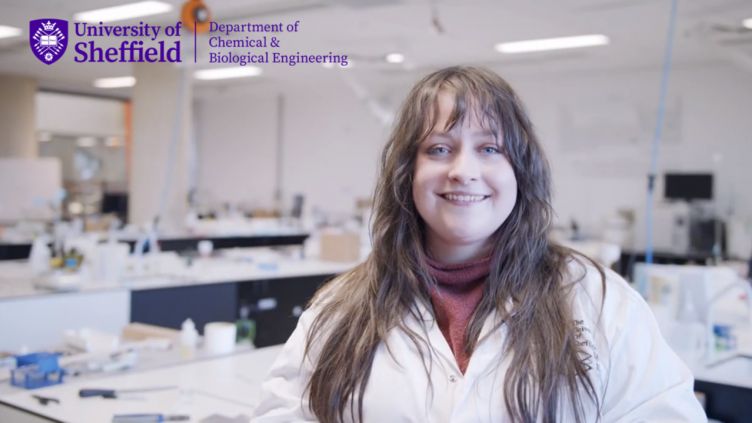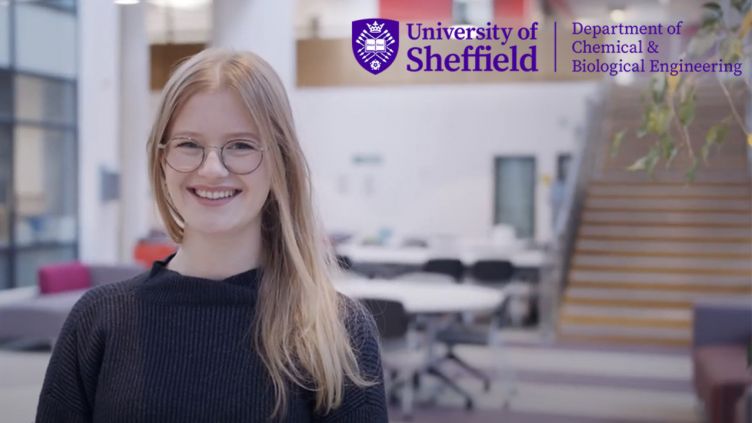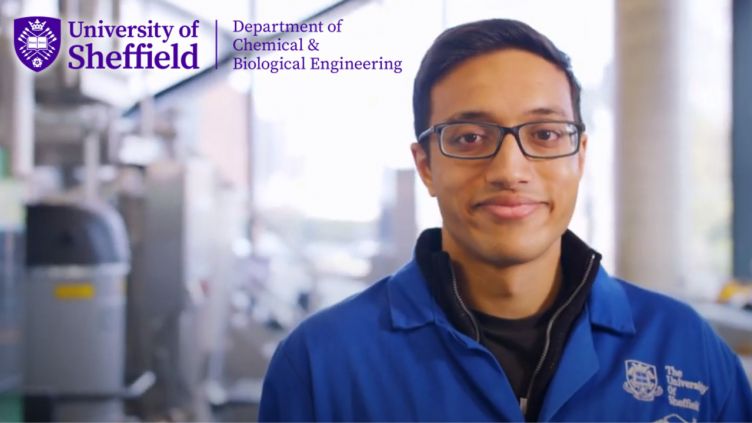PhD study at Sheffield
Finding solutions to some of the world’s most pressing challenges is at the heart of the world-leading research we do in The Department of Chemical and Biological Engineering. Our staff are experts in their fields, from new vaccine production methods to climate change and sustainability research.
What is a PhD?
A PhD is the opportunity to delve into innovative research as part of the Department of Chemical and Biological Engineering.
A PhD in our department is often around four years of full-time study, although this can vary and students can choose to study on a part-time basis. It will see you undertake a research project under the guidance of one of our expert supervisors, all of whom regularly undertake their own research into the biggest challenges facing society such as climate change, affordable medicines, green manufacturing and sustainable agriculture.
PhDs are designed to enhance your analytical skills and further your lab experience. You’ll also have the opportunity to teach, giving you valuable experience in disseminating information and boosting your communication skills.
To start a PhD, you should have a minimum of an upper second class honours degree in chemical engineering, chemistry, bioscience or a related technical subject already. You don’t need to have completed this degree at The University of Sheffield, though we encourage our current students to strongly consider furthering their studies with us!
Research to change the world
From our renowned research to our state-of-the-art labs, The University of Sheffield has much to offer. Our research really is top-class. In fact, 96 per cent of The Faculty of Engineering’s research was rated in the highest two categories in the Research Excellence Framework (REF) 2021, meaning it is classed as world-leading or internationally excellent.
The faculty is also rated as top nationally for the quality of our research environment, showing that the Faculty of Engineering at Sheffield is a vibrant, innovative and supportive place to undertake research.
The Department of Chemical and Biological Engineering's research looks at some of the most prominent issues around the world today, and much of it is carried out by our postgraduate students as part of their PhD programmes, meaning you’ll be at the forefront of Sheffield’s innovative research programme. The department's current postgraduate research students are working on a wide range of projects, and they are vital to our research success.
Our rich environment for learning will prepare you to be a 21st century scientist and engineer. Our direct links with major industry players mean your learning will be cutting-edge and industry relevant. Many of our PhD researchers have gone on to work for Siemens, AstraZeneca, Nestle, P&G, Shell and Petronas.
We've invested £3.5 million in new research facilities for you, and we want you to become part of the research engine of the department - bringing your innovation, expertise and your creativity.
Research activities in The Department of Chemical and Biological Engineering are divided into four main themes, which together encompass the wide range of research undertaken here:
- Biological Engineering
- Processes and Systems
- Materials and Products
- Circular Economy
Why Sheffield?
When you study in Sheffield, there’s a big focus on the whole PhD experience, with societies, committees and events geared towards making you feel at home.
We like to think of Sheffield as the beating heart of Yorkshire. We’re a city proud of our diversity and welcoming atmosphere, with a big city vibe that feels like home. We’re also the greenest city in the country, with parks and greenspaces never far away and the stunning Peak District on our doorstep.
There’s a lot to explore in Sheffield, from the bustling nightlife, cosy cafes and trendy art exhibitions, to the theatre shows and festivals such as Festival of the Mind, which brings the university’s research to life in exciting, creative ways, and the annual music festival Tramlines.
Sheffield has a vibrant, thriving community of PhD students. We’re a real team, with fantastic support from both the department and the wider university available to make sure your PhD is as exciting as it should be.
What our PhD students say
Industry, university and COVID-19 testing: Hannah's PhD story
Computational chemical engineering and conferences: Anna’s PhD story
Electric vehicle batteries and swing dancing: Chirag’s PhD story
Training
When you join our department, you'll begin a programme of specialist training led by your supervisor. They, along with other staff in your research group, will help you get the skills you need to complete a great piece of research.
On top of the specialist knowledge you'll get through our department, the Engineering Graduate School will support your career development by helping you gain professional skills that are essential in all areas of engineering.
Your induction to the Engineering Graduate School will give you an overview of training opportunities, including essential health and safety knowledge.
After that, you'll be able to learn how to recognise good research and research behaviour, improve your communication abilities and experience technologies that are used in academia, industry and many related careers.
Your training needs will be assessed at the start of your PhD, so we can make sure you get all the support you need.
Doctoral Development Programme (DDP)
As a doctoral researcher (PGR student) you are automatically enrolled with the DDP - there's at least one compulsory module (Professional Behaviour and Ethical Conduct) and possibly more, please contact the department for further information.
There's also a wealth of training opportunities, funding, possibilities to attend international seminars/conferences and there's resources for you to use.
We realise each student joins us with a different set of skills and experience so the programme is flexible and will suit each individual's needs.
A Training Needs Analysis (TNA) is completed at the start of each year with your supervisor so that you can register with the training that will benefit you the most.
We want to ensure that all our doctoral researchers receive the highest quality of training and want to support you in becoming a world-class researcher.
Further information can be found on the DDP website.
What type of training is available?
The DDP covers a wide range of training. For example, you can take part in one or two part seminars that cover topics such as developing your online presence, producing an effective CV or career development.
There are also taught modules which take place over the academic year to help you develop your subject knowledge. You can view a full list of the training available on the DDP website: DDP training.
The DDP website has a list of FAQs that covers everything from assessment, attendance and registration: DDP FAQs
We've a number of funded positions available. Look on our opportunities page and follow the instructions to search for our offers.








